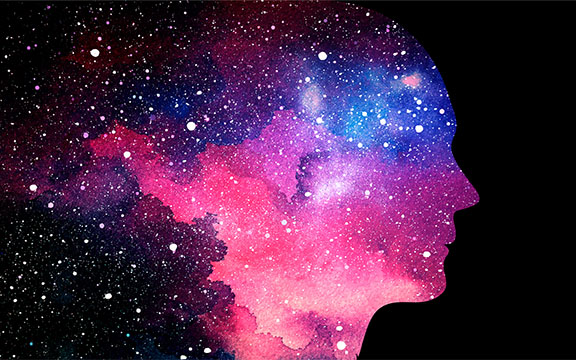
Photo via iStock.
God or Infinite Consciousness is That through which our own egos move. Unfortunately, the ego tends to overlook the fact that its capacity to function is from that Source, and instead it comes up with the notion that I am doing everything by myself.
But it would be a sad mistake if anyone thought we had to destroy the ego. Nothing—good or bad—is possible without the ego, but it should learn to accept its place. Eastern sages have compared the ego to a puppet with someone backstage pulling the strings. The puppet appears to be dancing by itself—that is the ignorance of the ego. This delusion can be overcome when the ego can truly realize its part as an instrument. As egoistic people we should turn toward that real Self and say, “God, or Divine Consciousness, without Your help I can do nothing. It is because of Your presence that I am able to do anything at all, so let me turn over all the benefits to You.”
Suppose I am speaking into a microphone. If it is disconnected from its power source, I won’t be heard. In the same way as electricity, the Unseen Force runs through every action, and this “divine electricity” is God. The ego moves because of the presence of that Power. When the ego really comes to terms with that, that is what is meant by spiritual surrender. To bow before the altar is to say that we know our limitations, to acknowledge that it is by the Divine Will that all is done. Having realized this we can pray: “I am Thine. All is Thine. Thy Will be done.”
As long as the ego realizes that it is an instrument of God, then it is a healthy ego; it will never bind us because we take everything as God’s Will. You accept what God gives, you accept what God takes.
Because we are in the world, moving through different relationships with different people, we find it convenient to talk in terms of “This is mine, that is mine.” Really it is like a game of chess where you pick up a piece of wood and say, “The Queen is moving.” If you give a name to it and play with it, and allow it to have its own limited movements so that the play can go well. But just behind that action is the awareness that it is all just temporary. It is the same way for “my” and “mine.”
At least on certain occasions, in times of need, we are made to remember this truth. In calamities we forget our petty differences, our enmity, and we come together. My spiritual master, Swami Sivanandaji used to say, “Oh pain, what a great blessing you are to me. You are my good friend because it is you who makes me remember God.” While enjoying ordinary happiness and worldly things we don’t call on that Higher Force, but when we suffer something, we immediately blame God. “God, how could you let this happen to me!” At least we think of God then!

